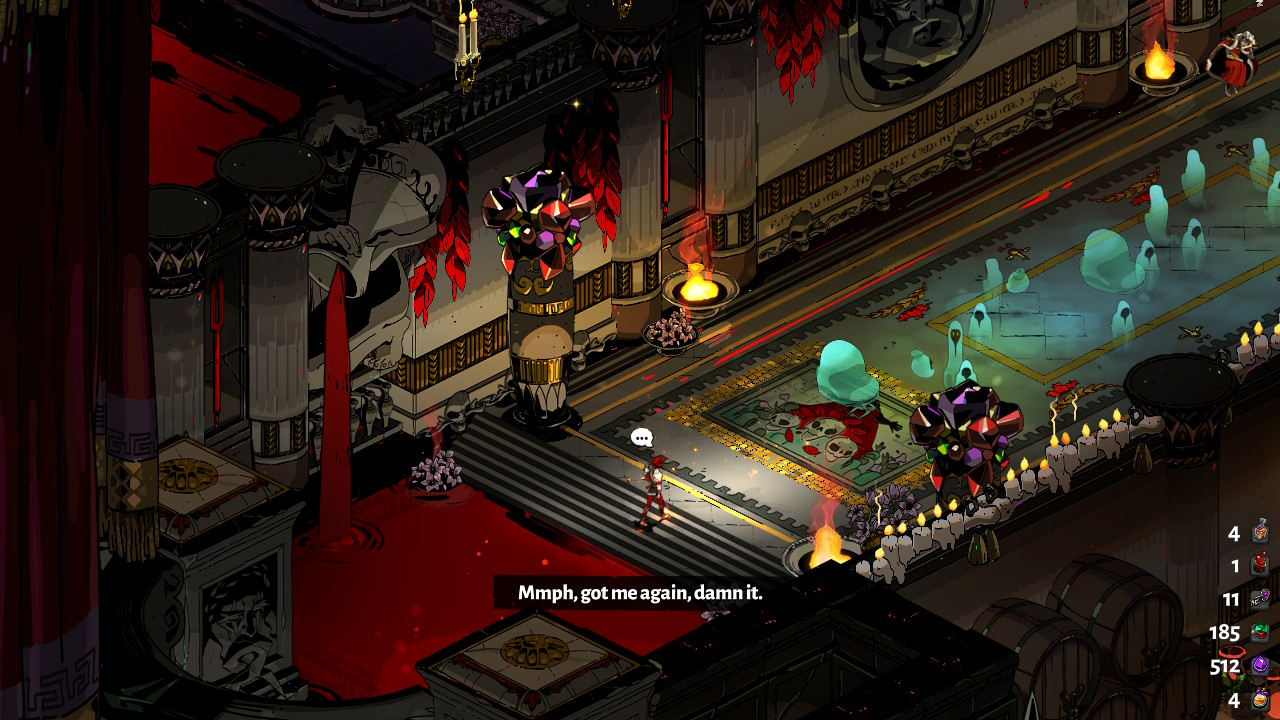
Hades
Hades has hooked me in a way that no roguelike before has. There has been no shortage of virtual ink spilled on why this game is so great, but for me it comes down to a few main things: improvisational combat, evolving systems, and story.
Improvisational Combat
Hades strongly encourages you to play with different loadouts. While I have favorites, I still have fun playing regardless of the weapon I choose at the start of my run. That combined with the insane variety of upgrades you’ll earn, you really won’t know what combat style you’ll be leaning on until it presents itself to you. This makes every run feel surprising and fun.
Evolving Systems
If someone explained all of the progression systems in Hades to me before I played the game, I would have been turned off by the complexity. But one of the game’s many magic tricks is how it introduces them to you slowly over time, as to not overwhelm the player. In fact, you could argue that the game doesn’t fully open up until you survive your first full run. Never have I been so motivated to keep playing after I ‘beat’ the final boss. And if you don’t understand, or aren’t interested in some of the systems, it’s fine. Don’t feel like playing the fishing mini-game that pops up later on? Hades won’t be mad at you.
Story
Since you’re repeatedly starting over, roguelikes often don’t have much of a story. Hades on the other hand, reveals the reason for Zagreus’ escape from the underworld patiently over many playthroughs. More impressive yet, it does so with a staggering amount of dialogue that never seems to repeat across dozens and dozens of runs. Learning more about the world and your favorite characters can be just as much as a reason to play as leveling up and beating your last run.
Protip: If you start to feel like you might be stuck and ready to walk away from Hades, don’t be afraid to turn on the God Mode difficulty setting. It adjusts the difficulty over time to meet you where you are, and you can shut it off at any time.